BLUE indicates seller’s
GREEN indicates buyer’s
GRAY indicates mixed or shared
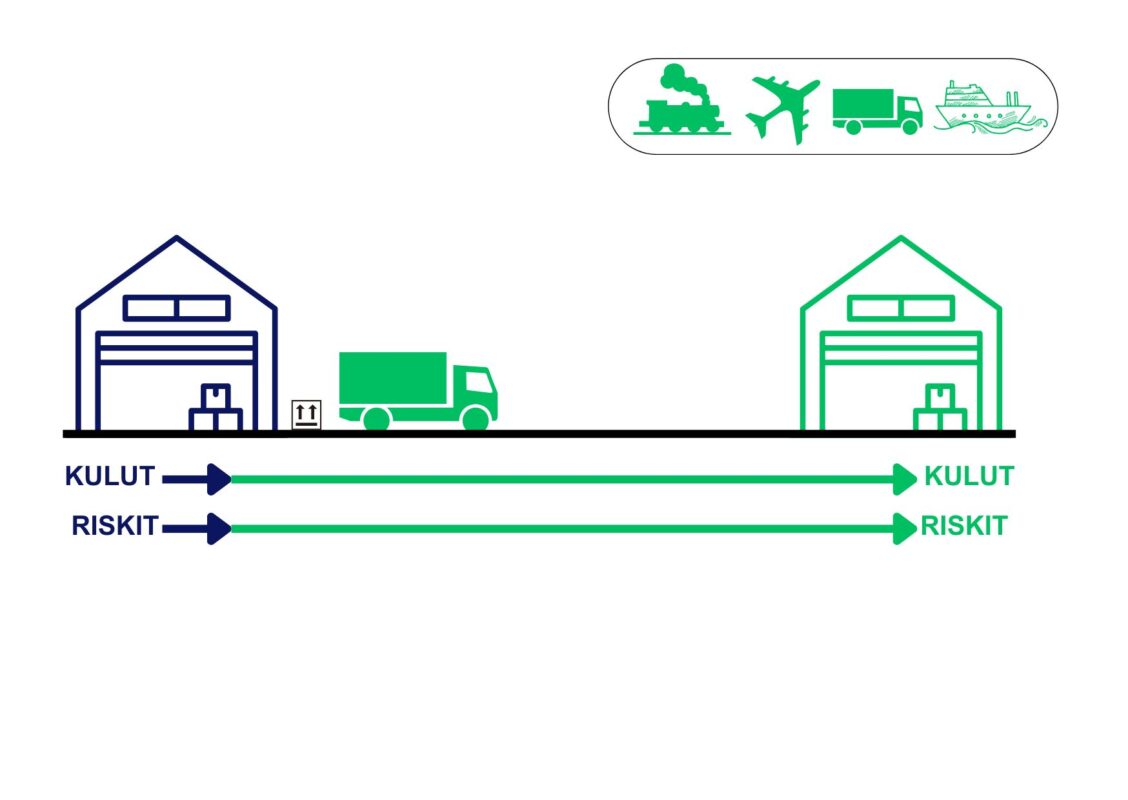
Ex Works is a shipping arrangement in international trade where a seller makes goods available to a buyer, who then pays for transport costs. The buyer is responsible for loading the goods onto trucks, transferring them to a ship or a plane, and meeting customs regulations.
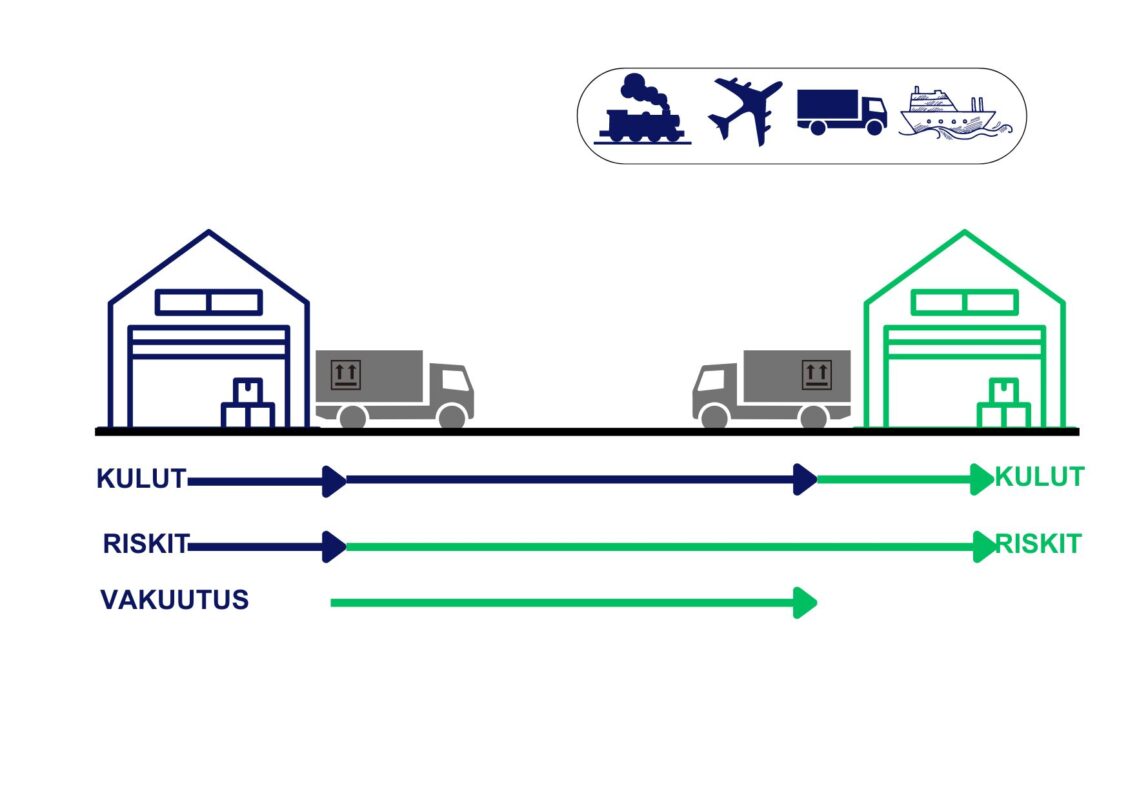
In Carriage and Insurance Paid To the seller is responsible for all risks until the goods are delivered to the first carrier at the place of shipment, not the place of destination. After that, the buyer is responsible for all risks.
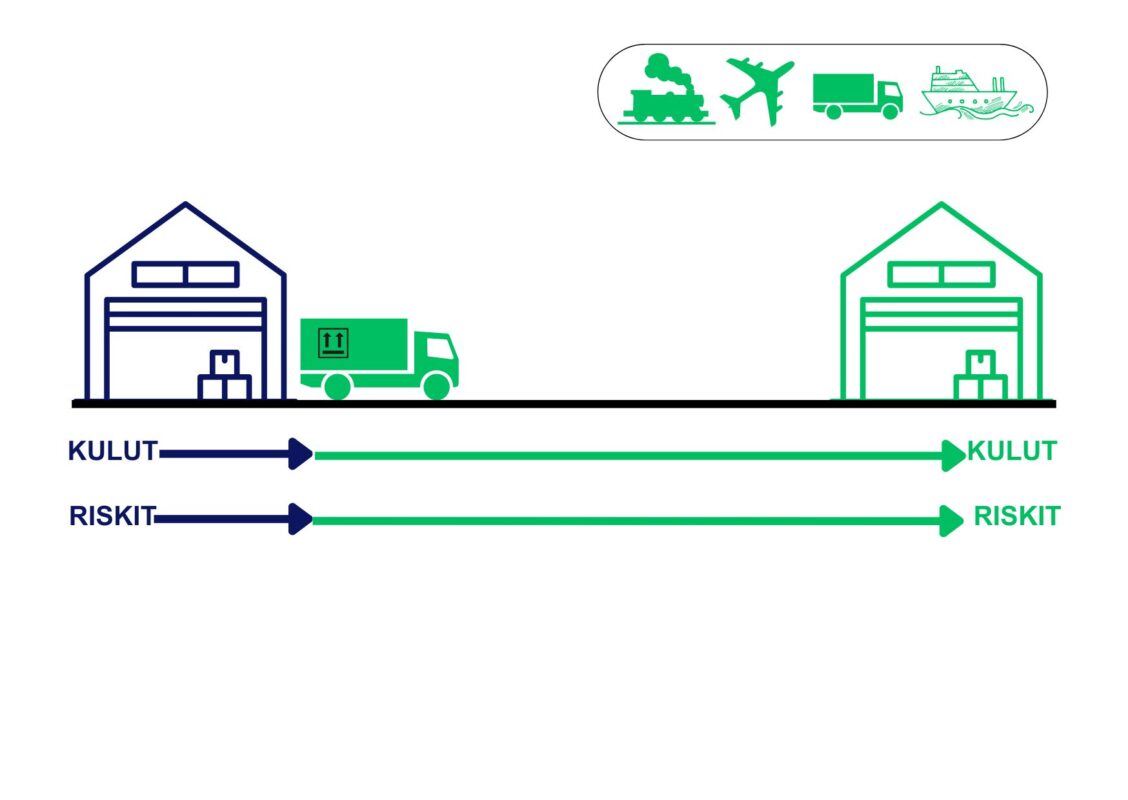
Under the shipping terms for Free Carrier the seller is responsible for export clearance and delivery of goods to the carrier at the named place of destination.
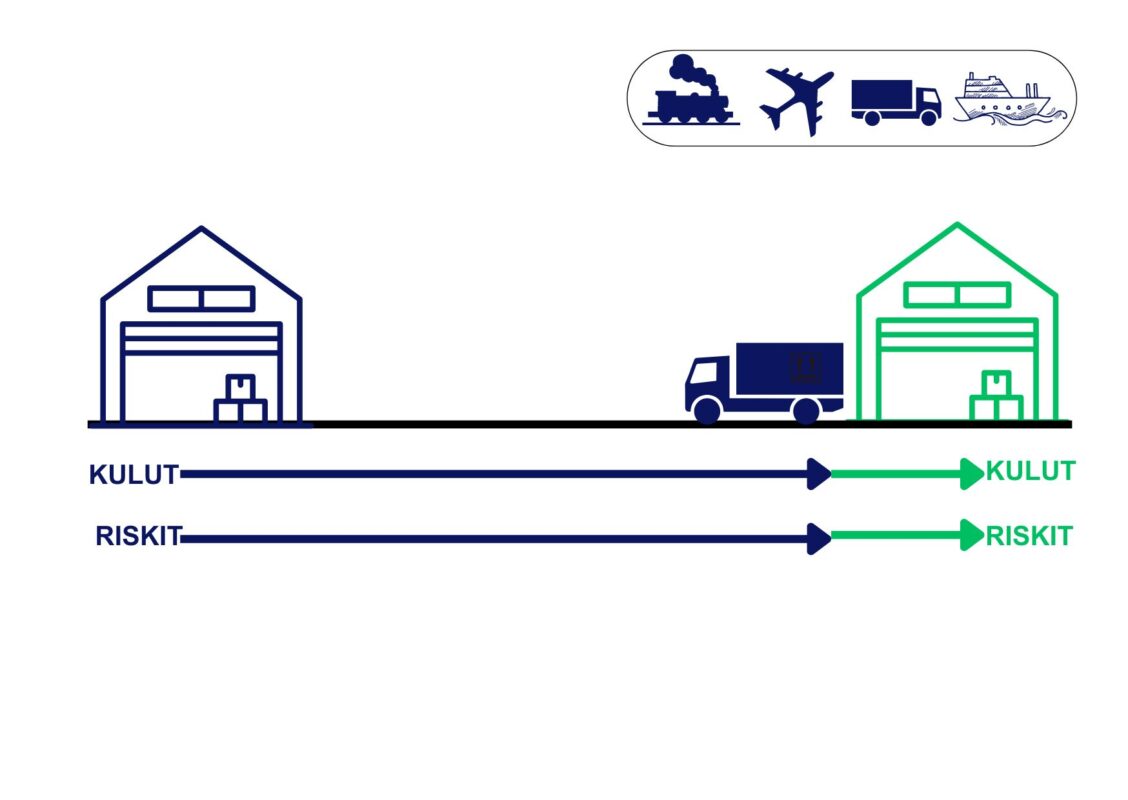
According to the Delivered at Place Incoterms rules, the seller is responsible for delivering the goods to the named place of destination and assumes all risks involved up to unloading. The goods must be ready for unloading upon arrival. The buyer is responsible for unloading the goods at their own risk and cost.
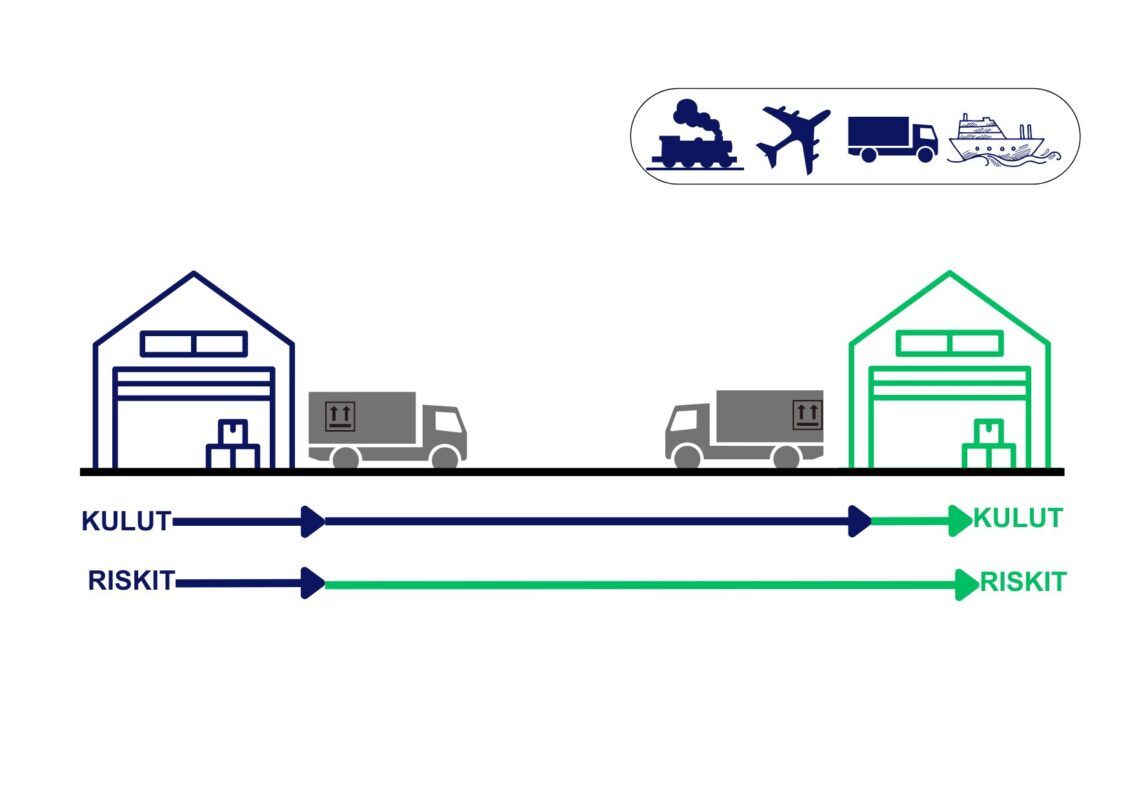
According to the Carriage Paid To Incoterm, the seller is responsible for arranging carriage to the named place of destination, but not for insuring the goods to the named place. The transfer of risk from the seller to the buyer occurs when the goods are taken in charge by a carrier.
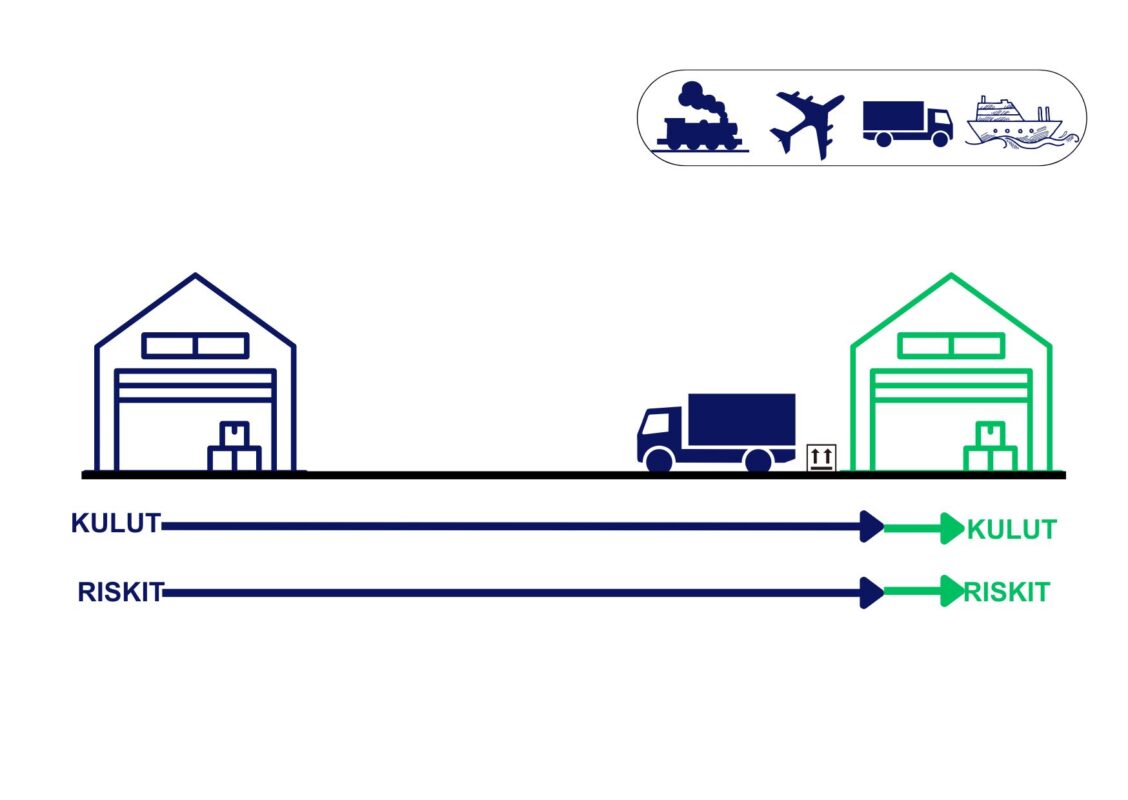
Delivered at Place Unloaded incoterm means that the seller of goods is responsible for delivering them to a specific location and unloading them from the vehicle or vessel that carried them. They also pay for all the costs and risks involved in transporting and unloading the goods. The buyer only has to take over the goods after they have been unloaded and clear them for import.
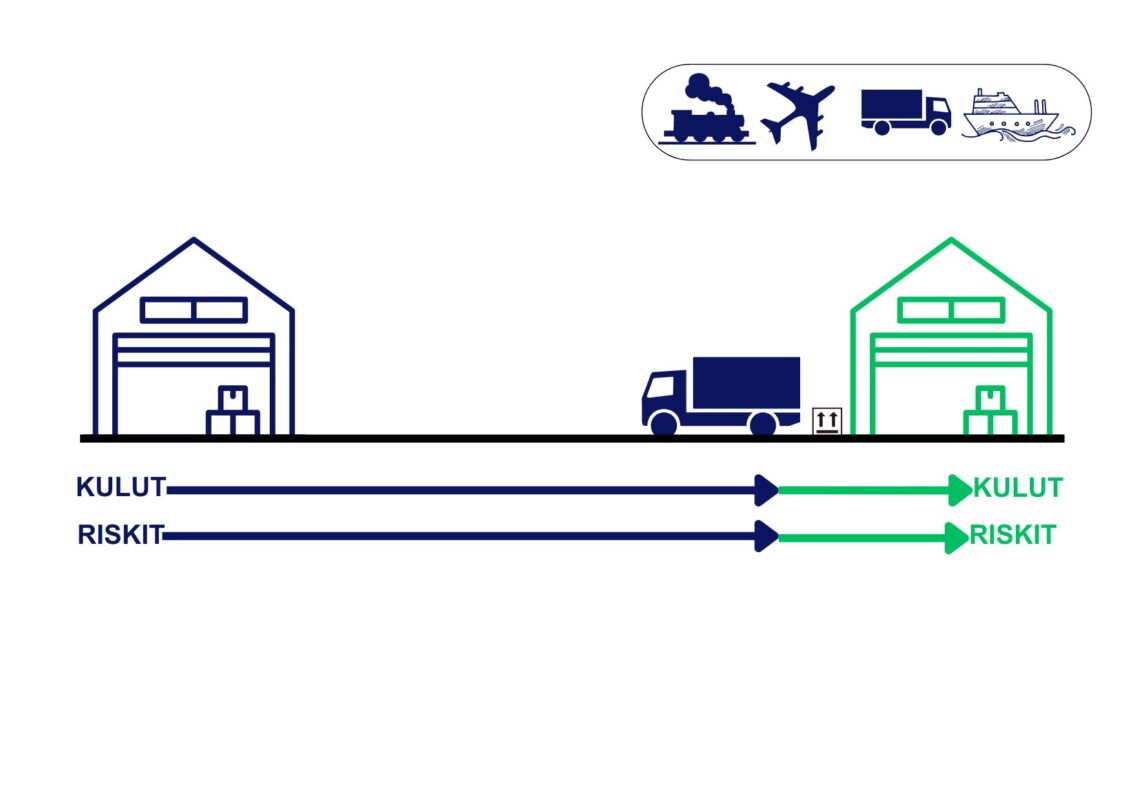
With Delivered Duty Paid incoterm the seller is responsible for delivering the goods to the buyer’s location and paying for all the costs and risks involved in the process. This includes the transportation, insurance, customs clearance, import duties, and taxes. The seller has to make sure that the goods are ready for unloading at the destination and provide proof of delivery. The buyer only has to unload the goods and take ownership of them.
Incoterms for sea and inland waterway transport
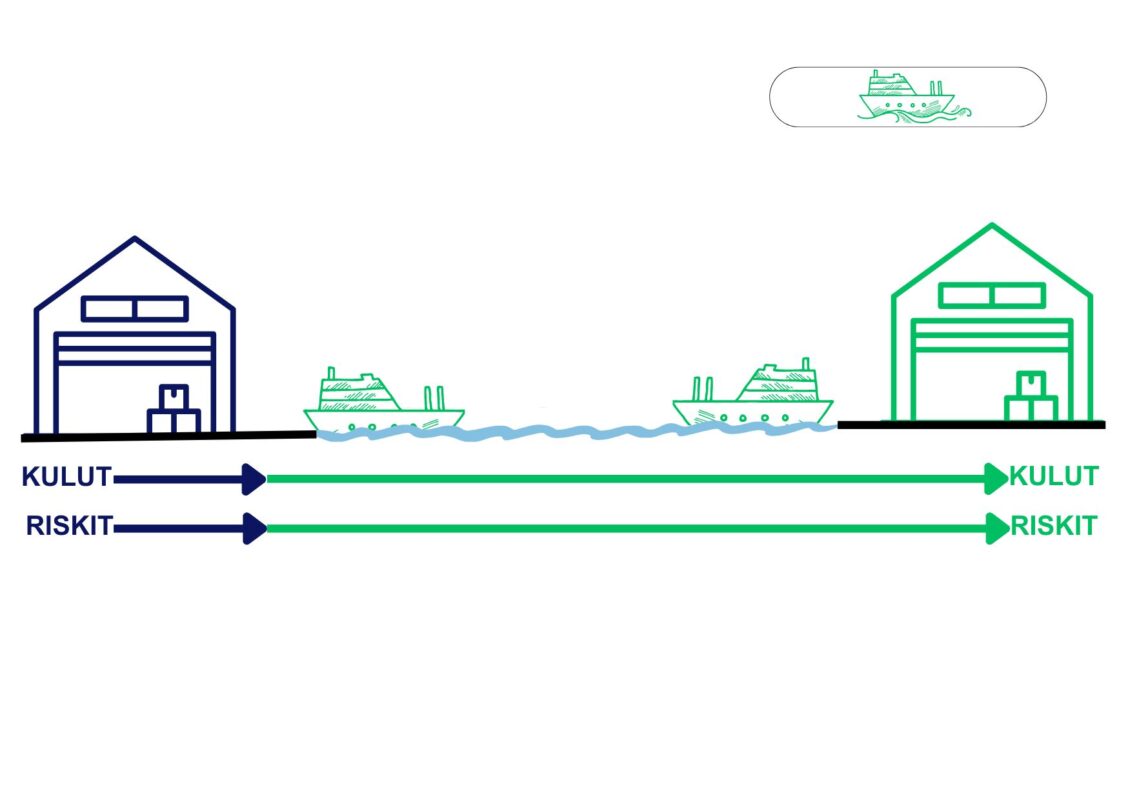
Free Alongside Ship is a term that describes how goods are delivered by the seller to the buyer in international trade. It means that the seller is responsible for bringing the goods to the port of departure and placing them next to the ship that will carry them to the destination. The buyer is responsible for loading the goods onto the ship and paying for the transportation and insurance costs.
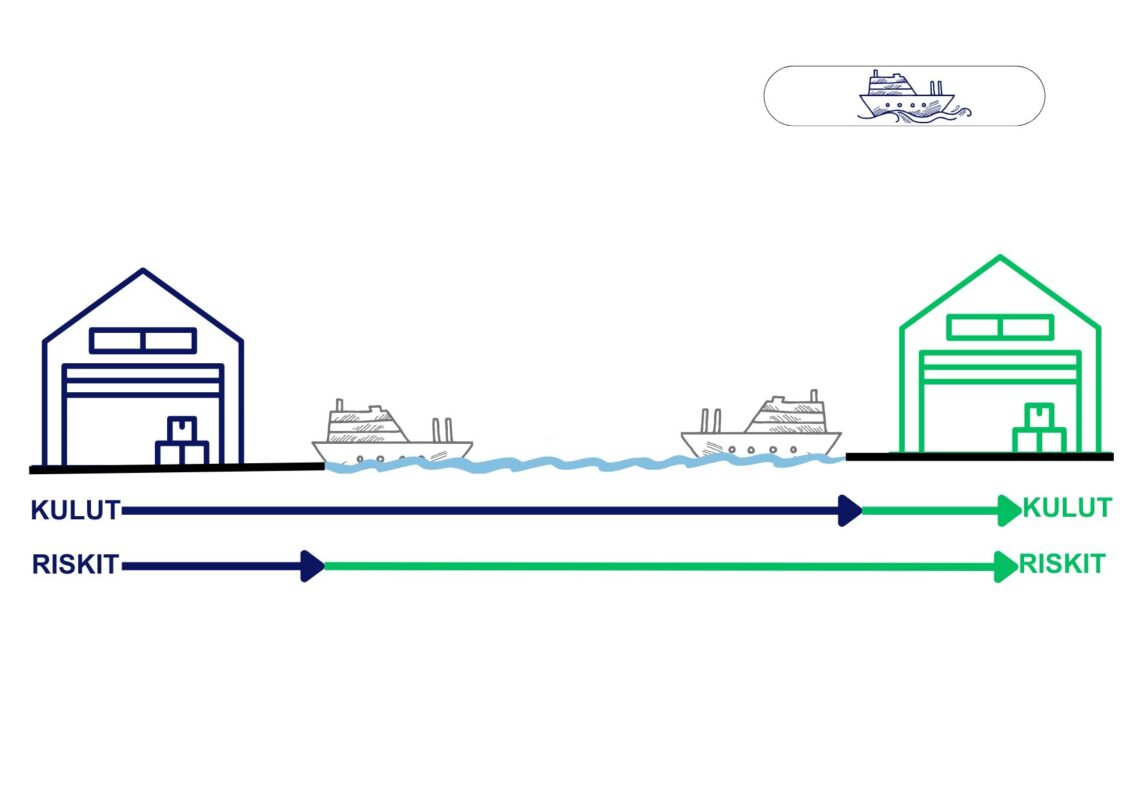
Cost and Freight incoterm means the seller is responsible for delivering the goods to the port of destination and paying the freight costs. The buyer takes over the risk of loss or damage once the goods are loaded on the ship, but does not have to pay for insurance.
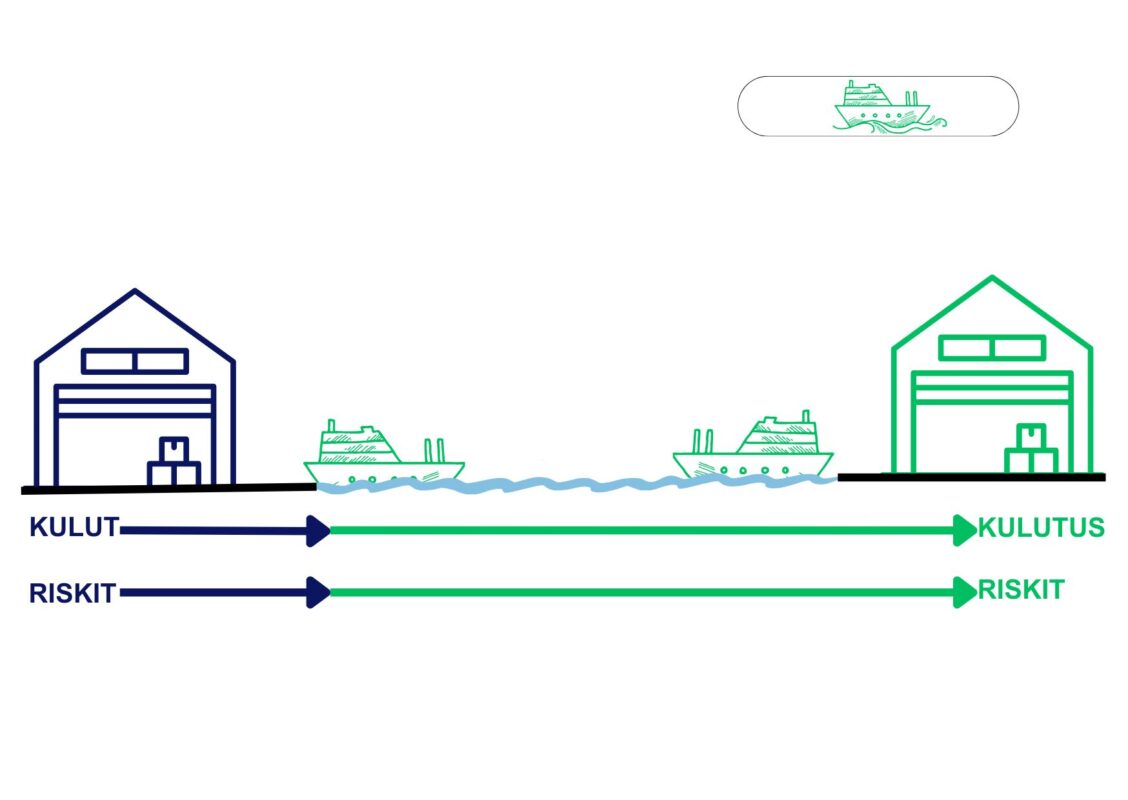
Free on Board incoterm means that the seller of goods delivers them to a ship at a port that both parties have agreed on. The seller is responsible for loading the goods onto the ship and clearing them for export. Once the goods are on board the ship, the risk and cost of the shipment are transferred to the buyer, who has to take care of the import formalities and transportation to the final destination.
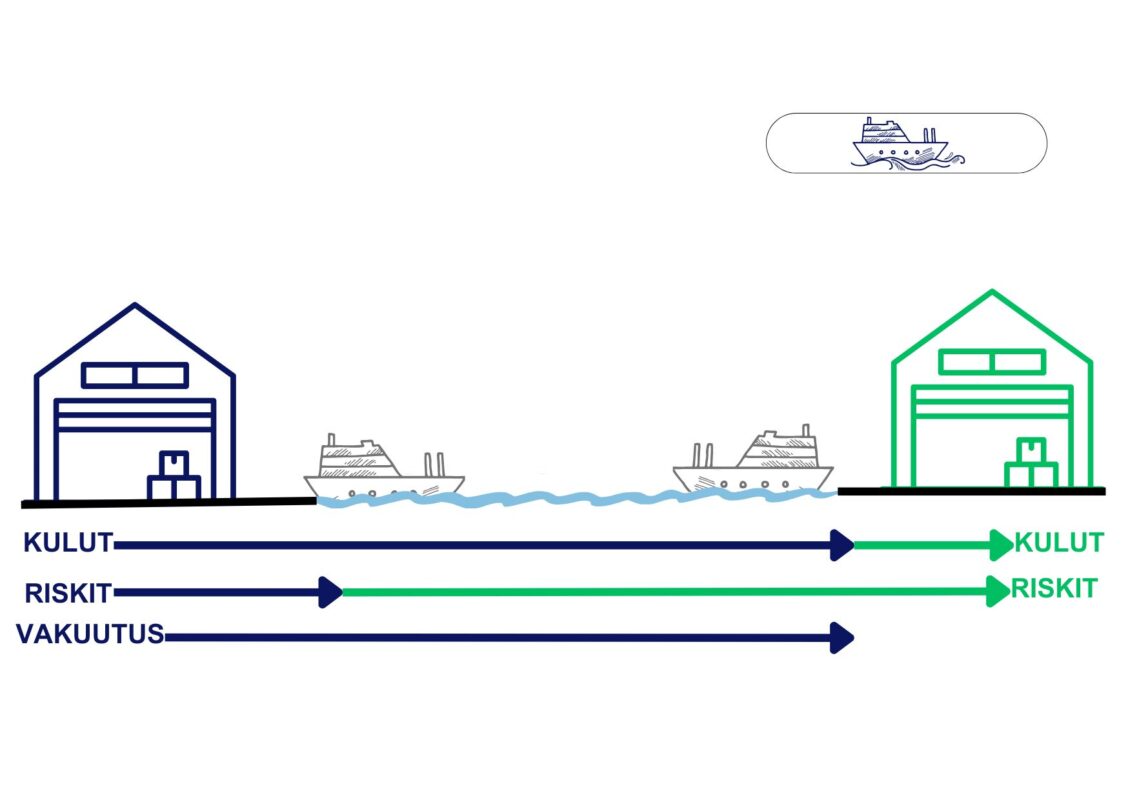
Under Cost, Insurance and Freight incoterm the seller is responsible for paying the cost of shipping the goods by sea or waterway, as well as the insurance to cover any loss or damage to the goods during transit. The seller delivers the goods to the ship at the port of shipment and provides proof of delivery and loading. The buyer takes ownership of the goods once they are on the ship, but the seller pays for the freight and insurance until the goods reach the port of destination. The buyer then pays for any import duties, taxes, and fees to clear the goods from customs and deliver them to their final destination.

 Suomi
Suomi